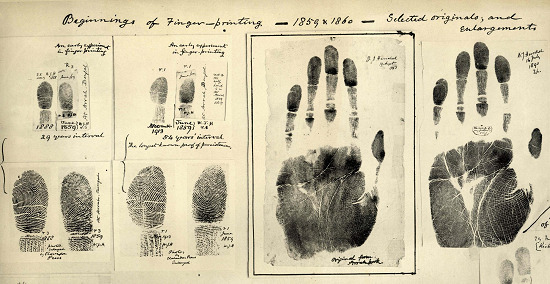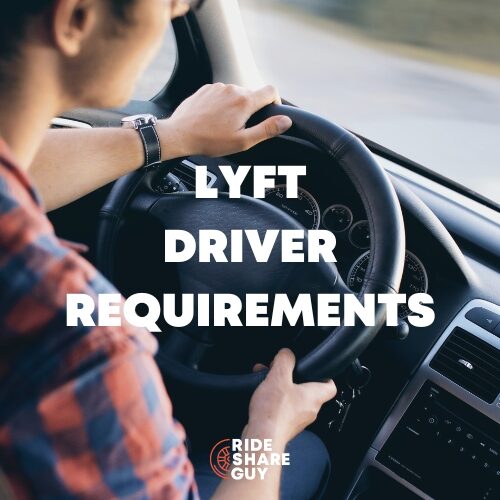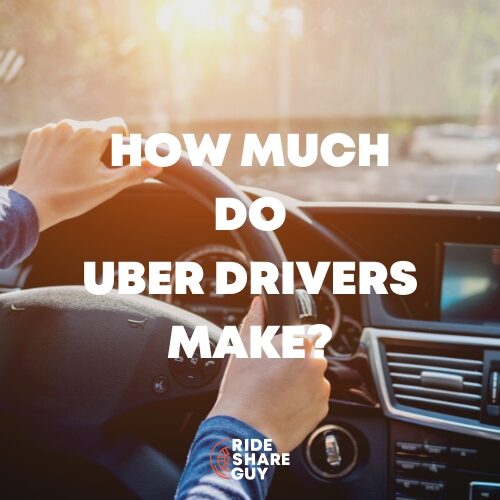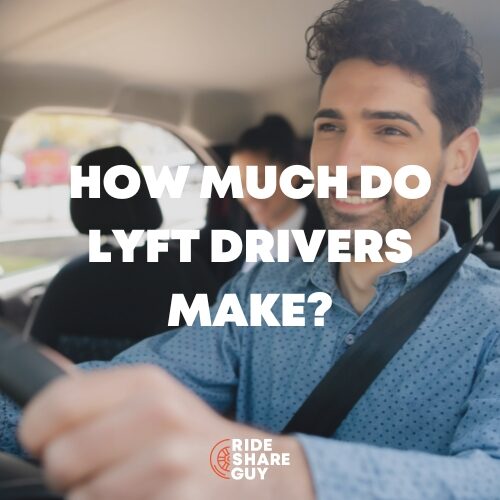Harry here. We’re no fingerprinting experts, but today with the help of RSG reader Tony (who is) and RSG contributor Christian Perea, we talk all about fingerprinting and whether it should be a requirement for rideshare drivers or not. Uber’s safety checks have been in the news a lot lately and with the latest incident in Kalamazoo (even though the driver did pass a background check), those safety issues have been brought front and center again.
Fingerprinting is a recurring issue for TNC companies throughout the US. Local governments often attempt to adapt their regulatory structure to react to the onslaught of drivers that suddenly appear on their streets sporting Us and ‘staches.
The most recent battleground has been in Austin, where city officials were advocating to have drivers fingerprinted while TNCs such as Uber and Lyft are threatening to leave the market.
Proponents of FBI fingerprinting claim that it acts as the most reliable layer of security and provides the best method for looking into potential criminal records while also verifying that drivers are who they say they are. Other interests often argue that TNCs should be held to the same safety standards as other for-hire drivers such as taxis and limos in order to ensure public safety and a level playing field.
Critics of fingerprinting claim that it has been used as a barrier to employment, that it disproportionately targets those with “arrests” vs. convictions (thus harming people before due process). Further, the Department of Justice points out on Page 10 of this report that the database is not necessarily reliable enough to make a full decision.
So Is Fingerprinting Good For Drivers?
Yes and no. As a full-time driver my knee-jerk reaction is YES. Not because it’s safer or better for the world or whatever, but because I know that fingerprinting will slow down the onslaught of new drivers that arrive every week. It would increase the barrier to entry and slow the constant flood of drivers that allow these companies to lower rates without suffering a significant loss of drivers.
But I also recognize that it makes it more difficult to become a driver. I have concerns about relying on the accuracy of a patchwork of federal, state, and local agencies to accurately report these records and how that would affect people’s lives if those records are wrong. That could deny some people an economic opportunity when they really need it.
It also means drivers would have to be more serious about getting involved. At present there is little to no training on local traffic laws for new drivers. The result is that on your drive home today YOU will get stuck behind a random Prius with its hazard lights on while a confused driver sits in the front seat frantically looking around for their passenger.
Why Is Fingerprinting Such a Big Deal for Uber/Lyft?
TNC’s want as many drivers as possible. In their ultimate vision, anybody who gets into a car would flip on an app and give rides along the way to their destination. A type of future where everybody calls a car whenever they need to go somewhere and car ownership becomes obsolete. This “vision” requires that the process of becoming a driver be seamless and easy. Otherwise TNC’s face being relegated to a (tremendously) expanded version of taxis.
Just Like Broward County: The Real Reason Behind Uber Leaving Broward County (Florida)
This is why companies like Uber spend so much on lobbying local and state governments. Losing access to even half of their part-time and casual drivers would heavily affect their growth. Further, fingerprinting would greatly increase their recruitment costs as they try to get drivers to jump through an extra hurdle.
Companies like Lyft and Uber are so adamantly opposed to local fingerprinting legislation that they will often flat out leave a market when local governments pass regulations that require fingerprinting drivers. They will even do this after investing a great deal of money in lobbying and after mobilizing local passenger campaigns to influence local governments.
TNCs fear that if they accept these local laws that it will set an example that other cities can follow suit. All or nothing thinking. In the end they decide to break an egg to save the rest in the nest.
The Difference: Private Background Checks vs FBI Fingerprinting
Recently, RSG reader Tony wrote in to us to explain the difference between the fingerprinting and name-based background checks and their quality and reach. He does this stuff for a living, so thanks Tony!
Name-Based Searches
These are the most readily available, least expensive and most unreliable of background checks. The scope of these background checks can be very broad (nationwide) or very narrow (city/county level). They are most frequently obtained by paying a third party vendor through the internet to research an individual’s criminal history. The information comes from local and state court records as well as law enforcement records.
Let me address how these are a less reliable method. It isn’t because the information is not factual information. The problem resides in the lack of certainty that the information obtained does in fact belong to the individual you are researching. Names, dates of birth, SSN’s, etc. all can be, and often are, lied about. Let’s face it, convicted criminals aren’t known for being the most trustworthy individuals. Criminal-types obviously know they break laws and therefore they often deliberately do not carry identification.
So if I get arrested and I tell law enforcement my name is Harry Campbell and I give them Harry’s date of birth and social security number, he is going to have some serious challenges passing a name-based background check 😉
Fingerprinting-Based Background Checks
These are the least accessible, most wide-reaching and most reliable types of criminal history checks. Despite this, they have limitations. In order to obtain a fingerprint-based background check on an individual, that individual must agree to being fingerprinted. Those fingerprints are then submitted to the FBI to obtain the criminal history (if any) of that individual from all 50 states.
The Core Issue: Identity Verification
It is not difficult to commit fraud to get onto the Uber platform through the private background checks if you have somebody willing to let you borrow their identity (or if an identity is stolen). The system only verifies data for the information provided upon sign-up.
This means that if someone tries hard enough, they can do it. With fingerprinting, or at the very least, meeting potential drivers in person, documents and identities can be better verified.
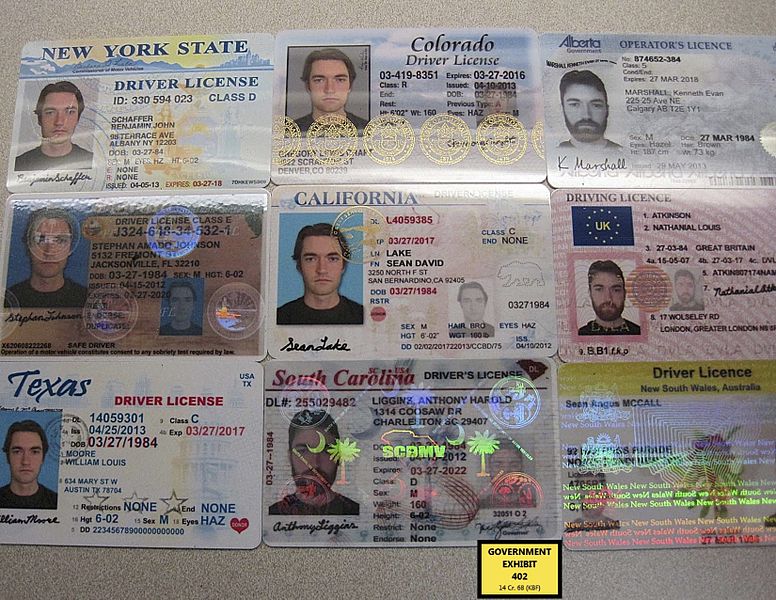
There have been reports of drivers using fake names or different cars to drive for these services by passengers. To be honest, we have even received messages on this site from drivers using their “friends” profiles to drive seeking advice on taxes! (We advised them to stop committing fraud).
In Uber’s defense, they have recently taken the extra security precaution of asking drivers occasionally to take a picture of their face to verify they are the correct driver before they can get on the road. Although it seems a bit dystopian to many, it definitely makes it more difficult to commit account identity fraud. My only suggestion would be to ask for a picture of the driver NEXT to their car with visible plates.
Lyft has managed to get around this problem with its mentor program, which requires that applicants meet in person and present their documentation.
Ironically, there are plenty of accounts of cab drivers passing “best practice” fingerprinting checks and engaging in fraud or committing crimes. So it seems every mousetrap is more or less an IQ test. At the end of the day, there is really nothing one can do to prevent 100% of fraud. You can only make it more difficult to get away with.
My Take
Uber actually has it right with photo verification. Want to make sure the dude who is driving right now is the right dude? Ask for a photo. Perhaps the process could be streamlined with facial recognition software. When I saw the screenshots asking for a photo, the first question to come to my mind was “What if someone gets a haircut?”
Following Lyft’s example with the mentor system and requiring drivers to meet SOMEONE in person to verify their identity could also make it harder to sign up with stolen identities. If the person at the Uber lot, or the Lyft mentor receives training on verifying ID’s it would add an extra layer of security at little cost.
My point is that there are a lot more options when solutions revolve around refining or creating new processes in order to get similar or better results than fingerprinting offers.
Do you think drivers should have to pass an FBI Fingerprint Background Check or is it just a waste of time?
-Christian @ RSG
